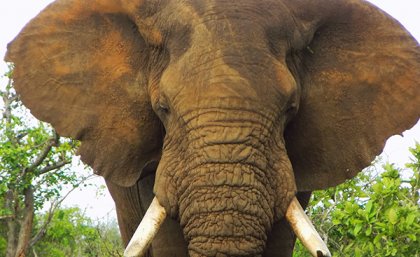
Advertising and education campaigns to reduce consumer demand for wildlife products could be more cost effective than trying to catch and punish poachers, a University of Queensland study has found.
Centre of Excellence for Environmental Decisions (CEED) researcher Dr Matthew Holden said governments and charities have spent billions of dollars trying to stop the illegal harvest of wildlife and most go to law enforcement agencies.
“However, case studies on ivory and other products suggest that advertising campaigns are promising management interventions for reducing poaching,” Dr Holden said.
“We’ve seen recent campaigns against illegal wildlife trade backed by celebrities including members of the British royal family, David Beckham and Chinese basketball superstar Yao Ming.”
Yao Ming - China Ivory Ban from WildAid on Vimeo.
The team of researchers examined two types of poaching in Tanzania’s Serengeti National Park – killing African elephants for ivory and other wildlife for meat.
Dr Holden said if advertising decreased the price of ivory by even a small amount, it would reduce the profitability of poaching more than by spending the same amount on apprehending and prosecuting poachers.
“The framework in our study can be used to aid investment decisions by comparing the cost-efficacy of advertising campaigns and anti-poaching law enforcement,” he said.
“We found that typical advertising budgets would only need to reduce the price of the wildlife product by a few percentage points to be more effective than spending the budget on more police.
“So some of these celebrity backed campaigns could be pretty effective, but we need to monitor the impact on consumer behaviour and wildlife populations threatened by poaching to say this conclusively.
“This information is currently lacking.”
The study is published in Conservation Letters.
Media: Dr Matthew Holden, m.holden1@uq.edu.au, @MattHHolden; Casey Fung, CEED Communications, c.fung@uq.edu.au, +61 433 638 643.
.jpg)



